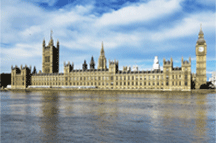 On Thursday 30 January, the Lobbying Bill received Royal Assent and became the Transparency of Lobbying, Non-party Campaigning and Trade Union Administration Act 2014.
On Thursday 30 January, the Lobbying Bill received Royal Assent and became the Transparency of Lobbying, Non-party Campaigning and Trade Union Administration Act 2014.
Part 1 of the Lobbying Act introduces a statutory register of consultant lobbyists and establishes a Registrar to enforce the registration requirements. It has endured much criticism from the public affairs industry, claiming the Act will not increase transparency in lobbying.
The Alliance for Lobbying Transparency (ALT) reacted negatively by calling the new Act “an exercise in time-wasting”: “The register of lobbyists that will now be introduced will not open lobbying as promised by the coalition in May 2010. As [ALT] has said all along, the government's register is a sham. A fake. It will not allow the public to see who is influencing our politicians. It merely allows the government to tick a box.”
 Michelle Stanistreet, General Secretary of the National Union of Journalists (NUJ), said: "This legislation is clearly [...] not going to prevent the next lobbying scandal, nor does it represent a threat to big business or other special interest groups gaining preferential access to government.”
Michelle Stanistreet, General Secretary of the National Union of Journalists (NUJ), said: "This legislation is clearly [...] not going to prevent the next lobbying scandal, nor does it represent a threat to big business or other special interest groups gaining preferential access to government.”

PRCA Director General Francis Ingham said he welcomed the Government’s concession to include details of subscription to existing industry codes of conduct into the register. However, “this is not an Act which will stand the test of time. By excluding in-house teams, the Government guarantees that its successor will have to revisit this issue. And the PRCA will help its successor to do just that.”
Much criticism has been focused on Part 2 of the Bill, which regulates election campaign spending by those not standing for election or registered as political parties.
The Stop the Gagging Bill campaign announced it was “very disappointed and saddened” by the news that the Bill would become law. They believe the Bill “could prevent charities and a huge number of other groups from campaigning and speaking out at election times, effectively gagging civil society groups in the year up to an election.”
The National Council for Voluntary Organisations (NCVO) said the end of the bill’s process was disappointing, but highlighted that it was “also important to highlight that over the course of the bill’s progress, very significant concessions have been made by government”.
 Despite concessions, David Babbs, Executive Director of 38 Degrees, one of the UK’s biggest campaigning communities, said he was “devastated” and called the Act “a catastrophic law”.
Despite concessions, David Babbs, Executive Director of 38 Degrees, one of the UK’s biggest campaigning communities, said he was “devastated” and called the Act “a catastrophic law”.
The Electoral Commission will produce guidance for third party campaigning over the next few months and the main changes introduced by the Act will come into effect on 19 September 2014.

Stephen Bubb, Chief Executive of the Association of Chief Executives of Voluntary Organisations (ACEVO), said that the matter is not yet finished: “ACEVO will be monitoring the impact of the Bill. […] And we’ll continue to agitate for political parties to revise this bad bill in light of our evidence after the 2015 election.”














